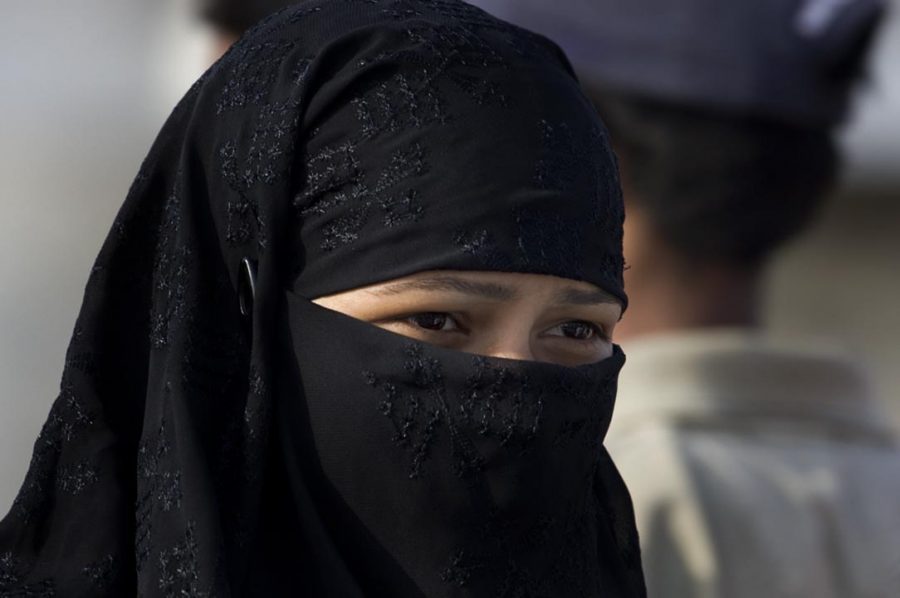Does the Government Have Business in Religion?
December 7, 2016
On December 6th, the German Chancellor proposed that veils, especially those that cover the face should be banned wherever legally possible. This would ban Muslim women from wearing veils and clothing such as the chador, niqab, and burqa, with intent to rid Germany of Sharia Law. Chancellor Angela Merkel claims that it would help Muslim women in Germany fully integrate into German society instead of following Sharia Law, but people do not seem to understand the Sharia Law isn’t actually law.
Sharia Law is instead a list of guidelines written for those who practice Islam to follow. Because it is a list of guidelines, those who follow it are not obligated, meaning that women are not required to wear a veil. The Sharia Law promotes modesty among both men and women.
In western countries and many countries in the Middle East, Sharia Law is not legally enforced. Many people, mainly who are not Muslim, believe that the veils are oppressive. However, most women who wear veils wear them for many reasons. Some wear them to feel closer to their religion and spirituality, while others wear them for modesty, and others wear them because they gain empowerment from it. No matter the reason, it is a personal decision made by the wearer.
Politicians like Merkel say that the veil prevents women from integrating into society. If we were to change the scenario from a veil-wearing Muslim woman to a devout follower of another religion and say they could not integrate into society because of their faith, the society would be considered bigoted.
By saying that those who wear veils can’t integrate into society, we expose an issue in our society. These women are just practicing their faith, just as a Jewish man wears his kippah. It exposes society for its Islamophobia and how it alienates those who do not conform to societal norms. This kind of mentality is dangerous for everyone and something that should be fixed so new generations can grow in an environment where people are accepting of other’s faith.
By allowing the government the capability to interfere with religious issues and ban traditional dress, we risk more intolerance and what could lead to intentional systematic oppression. By taking away someone’s right to wear a face-covering veil, we are taking away their right to choose. We are taking away their freedoms of dressing how they would like to.
There is no need to involve politics in religion and how people practice they practice.








Anonymous • Dec 19, 2016 at 8:42 pm
You say that the reason Angela Merkel imposed a ban on this type of clothing is because “it would help Muslim women in Germany fully integrate into German society instead of following Sharia Law”. However, the purpose of the ban was not to diminish any set of religious beliefs. According to article 4 of Basic Law (the constitution) in Germany, religious freedom is a guaranteed right. The intention of this ban was rather in the interests of security for the German people. Wearing a full or almost full face covering can potentially interfere with law enforcement operations as the features which are often used to identify a person become covered. I am in no way implying people who wear religious coverings mean harm. I am simply pointing out there is the potential negative impact on law enforcement. However, someone who did mean harm could take advantage of the ability to conceal his or her identity. Finally, one might argue that numerous Middle Eastern countries are able to have functioning law enforcement with religious coverings being legal. Even so, law enforcement and government in general within those countries is accustomed to doing their job with unique aspects like head coverings. Many western nations and their law enforcement organizations are not yet ready to effectively do their jobs with these potential obstructions. Ultimately, this issue is a question of safety and security of the people rather than an issue of rights and discrimination.